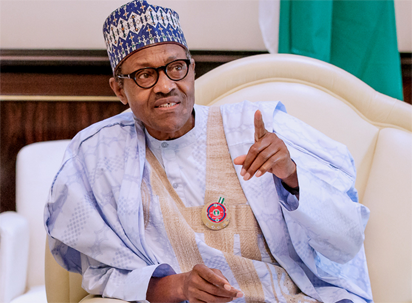Interpretation of Section 84(12) of the Electoral Act 2022 that had been the bone of contention between the executive and legislative arms of government was on Friday resolved by the judiciary.
The Supreme Court struck out a suit by President Muhammadu Buhari and Justice m i n i s t e r / At t o r n e y General of the Federation (AGF), Abubakar Malami, seeking to void the provision. The seven-member panel of the apex court unanimously held that Buhari cannot approbate and reprobate the Electoral Act having assented to it by turning around to fault its provisions, in particular section 84 (12).
The court ruled that the request by Buhari to the National Assembly to delete the provision amounted to constitutional violation.
In the lead judgement delivered by Justice Aokmaye Agim, the court upheld the objections raised by the National Assembly and other defendants against the suit.
It declared that the apex judicial organ lacked the jurisdiction to hear it and that the suit was an abuse of court process. “There is no provision in the constitution that vests the president the power to challenge the constitutionality or desirability of a legislation after he has assented or denied his assent. In this case, the president gave his assent,
“The president has no power to request or compel the national assembly to amend any part of the Act of the National Assembly in which he has participated in its making, “This suit cannot be entertained by this court under section 1(1) (a) of the Additional Jurisdiction of the Supreme Court Act,” Justice Agim ruled.
Read Also: Nigerians groan as prices of foodstuff continue to soar
With the judgement, the legislators have won in the politics surrounding the controversial Section 84 (12). Section 84 (12) completely hobbled a section of the political class with the attendant result of making participation in the Executive arm of government most unattractive, The Trumpet gathered.
According to Section 84 (12): “No political appointee at any level shall be a voting delegate or be voted for at the Convention or Congress of any political party for the purpose of the nomination of candidates for any election.” The consequence of an infraction of the section is set out in the following subsection 84 (13) thus: “Where a political party fails to comply with the provision of this Act in the conduct of its primaries, its candidate for election shall not be included in the election for the particular position in issue.”
It is obvious that members of the legislature, executive or political class generally are most concerned about the people in the electoral process. Underlying struggles between the two arms of government are for dominance within the political parties, which is a game of the survival of the fittest.
The crisis is rooted in the Constitution which inexplicably gives a monopoly to parties in the political architecture of the country. By law and the constitution of every political party, all persons holding elective positions such as local government chairmen, states and National Assembly members, governors, their deputies, the President and Vice President are automatic delegates at all levels of congresses and conventions.
By their sheer number compared to only the Local Government Chairman, Governor, Deputy Governor, President and the Vice President, there is no doubt that this favours the legislators. In other words, elected members of the Executive from the Local Government to the National level, otherwise called ‘Elected Delegates’ are not affected. But other Executive members such as Local Government S u p e r v i s o r s , C o m m i s s i o n e r s , Ministers etc have to contest to be delegates at all levels of the internal democracy of the party.
During the recent primaries across political parties, these ‘statutory delegates’ were not allowed to participate, thereby drastically reducing the numbers of those that voted in presidential primaries.
For instance, 2322 delegates voted in the APC primary and 736 in PDP’s. So, also were the numbers affected for national and state assembly seat primaries. Many serving legislators were badly affected because they lost outright to their states’ executive governors who are in charge of party structures and strictly produced delegates lists. But it is clear that the deed has been done.
The legislators cannot reinvent time and events. Their only hope lies in future elections, should the executive not embark on a renewed challenge to the provision in of Section 84 (12) of the Electoral Act 2022 with fresh arguments. Buhari on February 25 assented to the Electoral Act Amendment Bill, though with a caveat.
He asked the National Assembly to delete Section 84 (12) from the Act, which reads: “No political appointee at any level shall be a voting delegate or be voted for at the convention or congress of any political party for the purpose of the nomination of candidates for any election.” A legal firework was, however, ignited on March 18, 2022.
On April 7, a three member panel of the appeal court led by Rita Nosakhare Pemu granted the Peoples Democratic Party (PDP) permission to file a suit as an interested party against the March 18 judgment.






